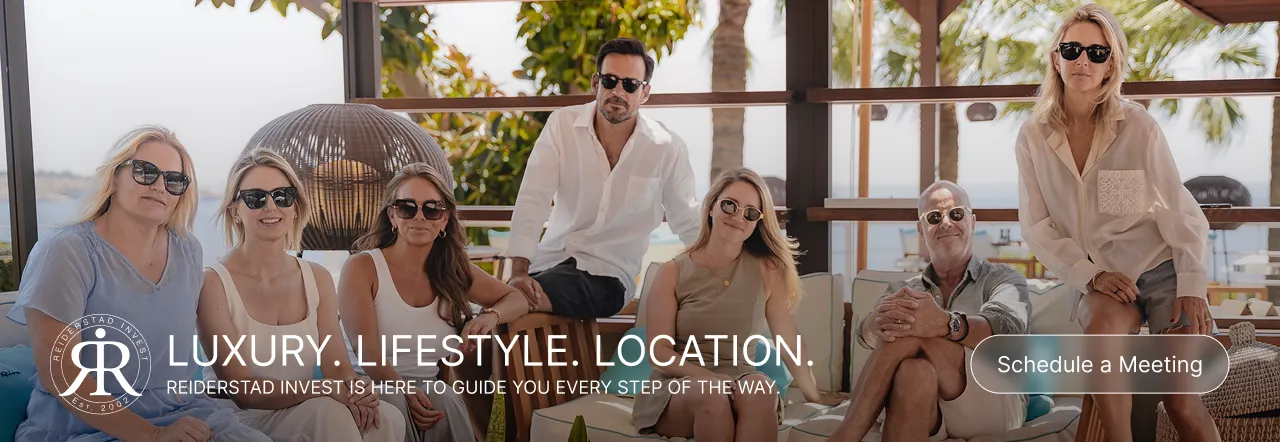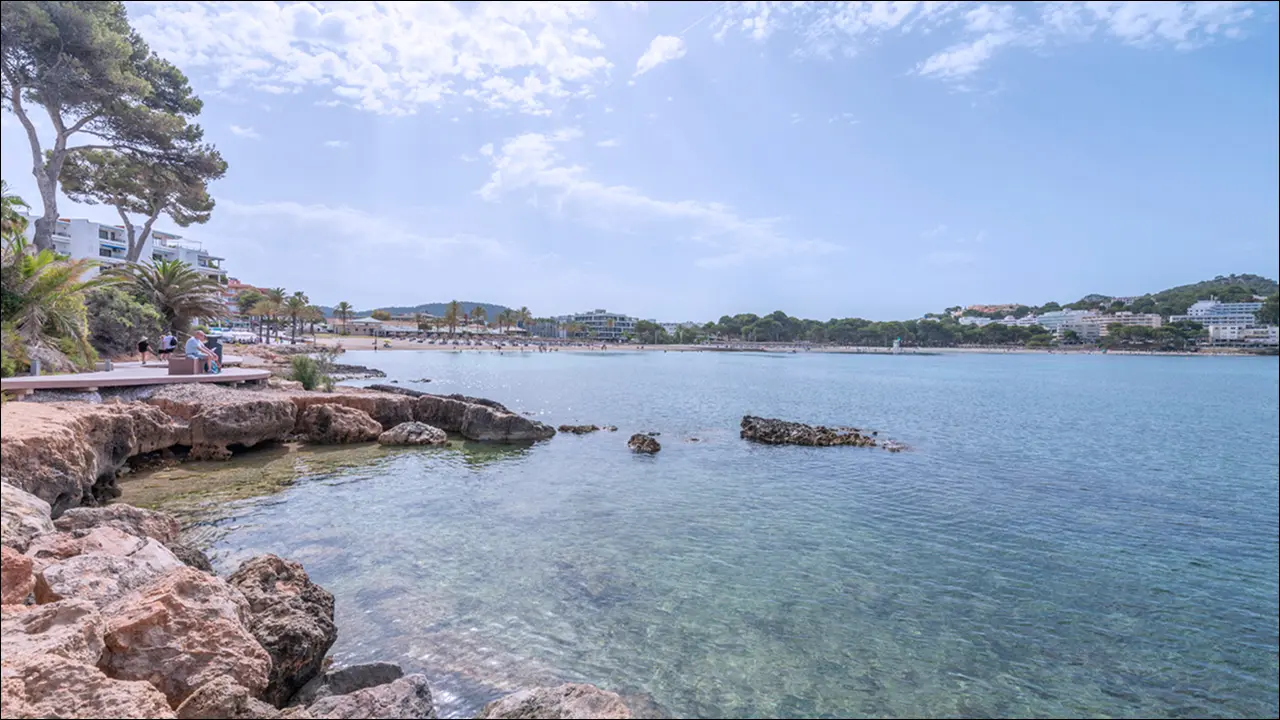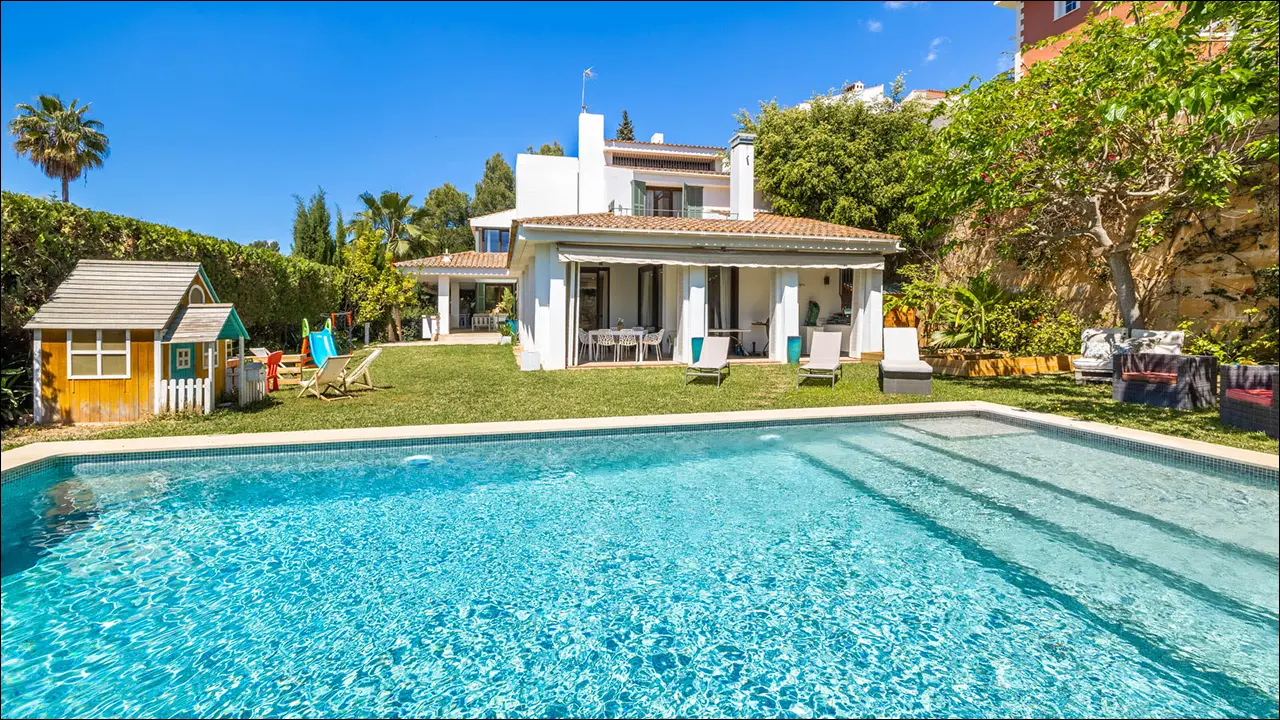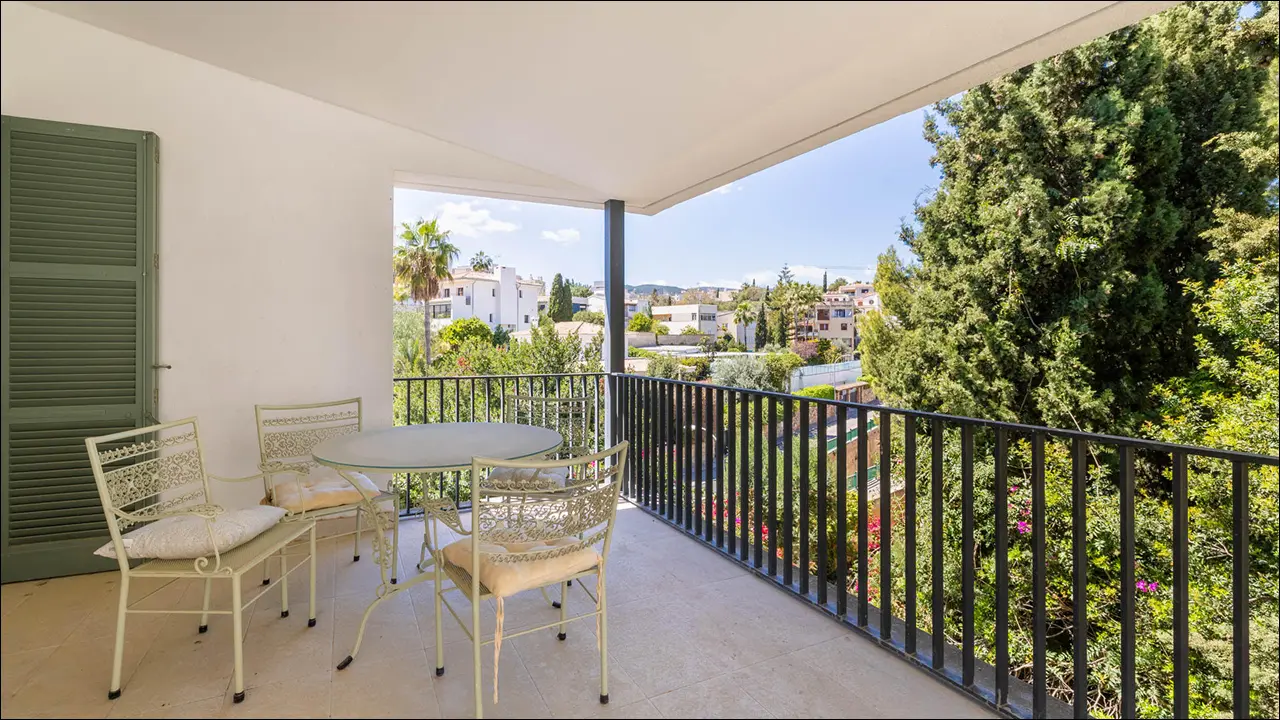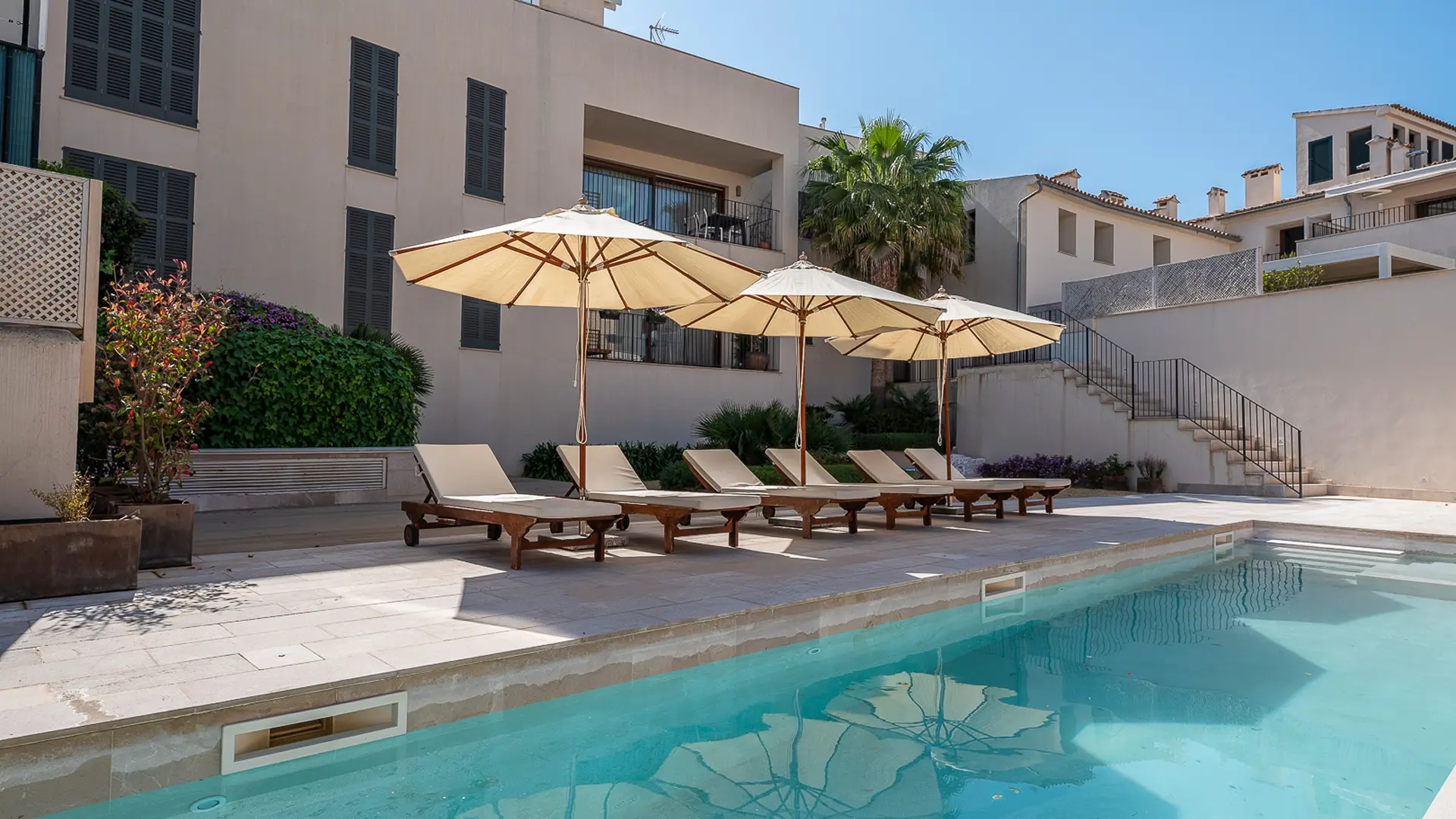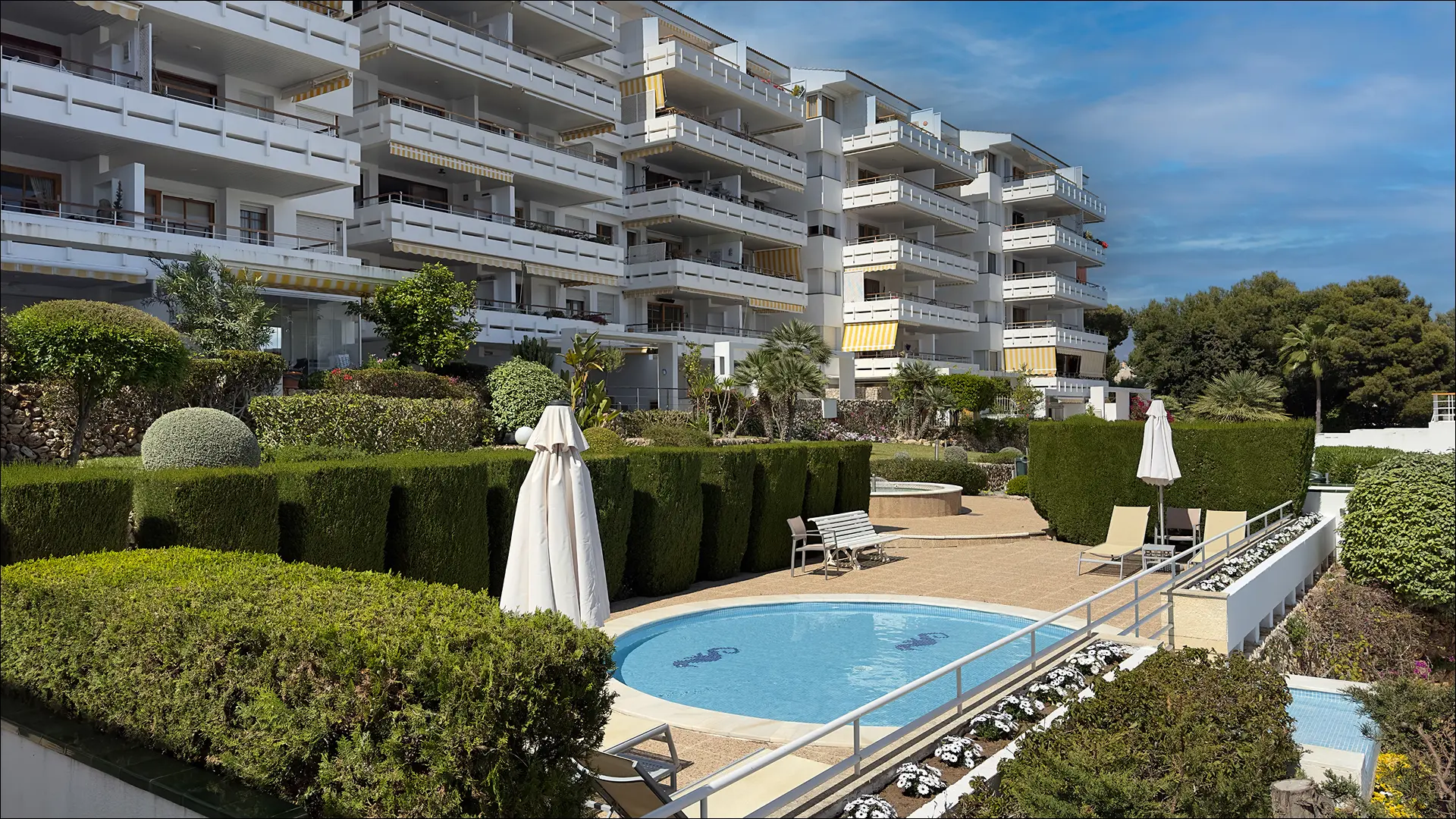TL;DR
Spain’s Golden Visa program, or as we like to call it the “Golden Ticket”, which allowed non-EU citizens to obtain residency through real estate and capital investments, was officially abolished on April 3, 2025.
But Spain, specifically Mallorca, remains a great choice for those looking to live, work, or invest in a vibrant Mediterranean setting. Today, there are several alternative residency options designed to match different lifestyles and personal goals:
- The Entrepreneur Visa offers residency for those launching innovative businesses that contribute to Spain’s economy.
- The Digital Nomad Visa allows you to work for foreign clients while enjoying Spain’s lifestyle and benefiting from favorable tax regimes.
- The Non-Lucrative Visa is ideal if you wish to live in Spain without working locally, relying on savings or passive income.
- The Highly Skilled Professional Visa is designed for those with local job offers in specialized, high-level roles.
- Wealth-based residency options allow you to demonstrate financial means without tying capital to property.
- Family Reunification routes enable family members to relocate and integrate seamlessly.
While no single visa directly ‘replaces’ the Golden Visa, Spain now offers several alternative paths to residency that align with different lifestyles and investment strategies.
The End of the Spanish Golden Visa: 5 Smart Alternatives for Residency and Investment
| Visa Type | Work Allowed | Investment Requirement | Duration & Renewal |
|---|---|---|---|
| Entrepreneur (Startup) | Yes (own business) | No fixed minimum (business plan) | 2 years, renewable |
| Digital Nomad | Remote only | Foreign income (€28k+/year) | Up to 3 years, renewable |
| Non-Lucrative | No initially | Proof of funds (€30k+) | 1 year, renewable |
| Skilled Professional | Yes (local job) | Job offer (€40k+ salary) | 2 years, renewable |
| Wealth-Based | No | Substantial assets | 1 year, renewable |
| Family Reunification | Yes | Linked to sponsor | Matches sponsor |
While the Golden Visa program has helped many foreign investors obtain Spanish residency, ending the program doesn’t mean that opportunities for foreign investment in Spain have disappeared. Spain remains open and is still a strong option for those who want to live, work, or invest there. There are different programs tailored to various goals and financial situations. For example, you can use a Startup Visa if you want to introduce something new, or you can choose the Non-Lucrative Visa if you don’t need to work for income in Spain. Each program is designed for working individuals or those with sufficient funds.
If your goal is to obtain Spanish residency, these programs still offer ways to achieve it.
Now, let’s explore some of the top ways you can invest in Spain with these 5 Golden Visa Spain alternatives.
1. Entrepreneur Visa (Startup & Innovative Business)
The Entrepreneur Visa — sometimes referred to as the Spanish Startup Visa — is designed for non-EU citizens who want to create and lead an innovative or economically impactful business in Spain. This route is ideal for those who see Spain not just as a place to live, but as a base for meaningful professional growth.
Unlike traditional investor visas, there is no fixed minimum capital requirement. Instead, applicants must present a strong business plan demonstrating innovation, economic interest, and potential for local job creation. The plan is carefully reviewed by Spain’s Directorate-General for International Trade and Investments (DGCOMINVER).
- You can apply for a visa (from abroad) or for a residence permit (if already in Spain).
- The initial permit is valid for 2 years, renewable in 2-year increments.
- There’s no requirement for a specific minimum investment, but most successful projects show readiness to commit €100,000–€200,000 or more, depending on the business type.
- Fast-track processing: visa decisions typically within 10 working days; residence permits within 30 working days.
- Family members (spouse, children, dependent parents) can be included and receive residence and work rights.
- Applicants must have private or public health insurance and proof of sufficient financial resources.
This visa is ideal for entrepreneurs launching startups, creative studios, boutique hotels, wellness retreats, or any venture adding real value to Spain’s economy.
For those envisioning Mallorca as both an inspiring home and a business base, the Entrepreneur Visa offers a perfect balance of lifestyle and impact.
Here’s where you should apply for this visa (including form) ⇒
2. Non-Lucrative Visa with Financial Independence
For those seeking a more tranquil lifestyle in Spain without the need to work locally, the Non-Lucrative Visa remains one of the most appealing options. This visa is designed for individuals and families who can support themselves through passive income, savings, or international business earnings, allowing them to fully focus on enjoying life.
Applicants must demonstrate sufficient financial means to cover living expenses in Spain. Typically, this means showing annual income or savings that comfortably exceed €30,000 per individual (plus additional amounts for family members). Comprehensive private health insurance valid in Spain is also required.
Although this visa does not initially permit local employment, it offers a chance to immerse yourself in Mallorca’s relaxed pace, cultural richness, and natural beauty. After one year, it is possible to explore options to modify your residency status if your plans evolve.
Whether you envision restoring a finca, sailing along the coast, or simply savoring slow mornings in a village café, the Non-Lucrative Visa offers a smooth path to building a new chapter in Spain, all while maintaining financial independence and flexibility.
Here’s where you need to apply for this visa ⇒
3. Digital Nomad Visa for Remote Workers
Spain’s Digital Nomad Visa – apply here – has quickly become one of the most attractive options for remote professionals who want to balance work with the Mediterranean lifestyle. This visa allows you to live in Spain while continuing to work for companies or clients based abroad, making it especially appealing for entrepreneurs and executives with international businesses.
To qualify, applicants must show a stable remote income (generally above €28,000 per year) and demonstrate an existing professional relationship with foreign employers or clients. You’ll also need private health insurance and proof of sufficient savings.
An additional advantage is access to Spain’s special tax regime, often referred to as the Beckham Law, which allows eligible newcomers to enjoy a reduced flat tax rate on Spanish-sourced income for up to six years.
For those envisioning long walks along Mallorca’s coast, working from a terrace with sea views, or spending afternoons exploring local markets and vineyards, this visa offers the freedom to enjoy Spain without putting professional life on hold. It also provides family reunification options, so you can share this lifestyle with your loved ones from the start.
Take a look at this 5-bedroom finca for rent in the neighborhood of Son Espanyolet ⇒
4. Highly Skilled Professional Visa
Spain’s Highly Skilled Professional Visa is designed for individuals with strong professional experience or specialized expertise who have secured a high-level position with a Spanish company.
To qualify, applicants typically need a university degree or equivalent professional credentials and a job offer with a minimum annual salary above €40,000. This visa is especially practical for executives, managers, and technical specialists moving to Spain under local contracts.
Applications can be initiated from your home country or while legally staying in Spain. The process is streamlined through Spain’s large companies unit (UGE-CE), making it faster than many traditional work permits. Once granted, this visa allows immediate local employment and opens the door to permanent residency after several years of continuous stay.
For families, this option offers quick reunification and the possibility for spouses and children to work and study in Spain, making it a smooth and future-focused transition.
Here’s the form you need to apply for this visa ⇒
5. Family Reunification Residency Route
Family remains at the center of Spain’s residency policy, and the Family Reunification Residency Route allows you to bring loved ones to Spain with minimal hurdles.
Once you have legal residency (through a work visa, entrepreneur visa, or other approved program), you can apply to bring your spouse, dependent children, and even dependent parents. Approved family members receive residence permits that grant them access to Spain’s healthcare, education, and the right to work in many cases.
This route ensures your family can enjoy life in Mallorca together, from peaceful seaside mornings to cultural festivals and local schools that encourage full integration. It’s an essential consideration for anyone planning a long-term move or wanting to build a true home in Spain.
Corporate and Tax Optimization Structures
Beyond visas, Spain offers a range of strategic structures to optimize investments and minimize tax exposure.
- Spanish SL (Sociedad Limitada): A flexible and widely used structure for property holdings, operating local businesses, or managing family offices.
- SOCIMI (Spanish REIT): An ideal vehicle for real estate portfolios, offering tax exemptions and reduced transfer costs if specific requirements are met.
- ETVE regime: Perfect for consolidating international holdings under a Spanish umbrella, with generous tax exemptions on dividends and capital gains.
For entrepreneurs and globally mobile investors, these structures can help protect assets, streamline inheritance planning, and create tax-efficient strategies tailored to each family’s needs.
Lifestyle & Integration Support
Relocating to Mallorca is about more than just paperwork; it’s about fully embracing a new way of life. At Reiderstad Invest, we provide expert guidance and guide clients through every step beyond the transaction:
- Local schooling options and private international academies.
- Healthcare navigation, from private clinics to wellness services.
- Connections to yacht clubs, golf memberships, and private art circles.
- Community introductions, including local business networks and cultural organizations.
By focusing on real, personal integration, families and investors can move beyond “residency” and feel truly at home in Mallorca’s unique rhythm.
Comparing Spanish Golden Visa Alternatives: Which Residency Path Fits You?
Explore this spacious home for rent in Son Espanyolet ⇒
Choosing the right residency route in Spain is about much more than paperwork; it’s about finding a solution that matches your lifestyle, financial goals, and family needs. Below, we outline which option best suits different situations, so you can make a confident, informed decision.
If you’re an entrepreneur or want to start a business in Spain
Recommended visa: Entrepreneur Visa (Residency via Business Creation)
This visa is ideal if you want to launch or grow a business that introduces innovation or economic value in Spain. You’ll need to present a strong business plan, typically investing around €100,000–€200,000 or more, depending on your project.
Perfect for:
- Entrepreneurs building startups or boutique hospitality projects in Mallorca.
- Families who want to establish a family-owned business (e.g., a vineyard, wellness retreat, or boutique hotel).
- Individuals looking for active business involvement rather than passive property investment.
If you work remotely for foreign clients or run a global company
Recommended visa: Digital Nomad Visa
This option allows you to live in Spain while continuing to work for companies or clients outside Spain. It requires proof of a stable remote income (around €28,000/year minimum), private health insurance, and compliance with remote work conditions.
Perfect for:
- Entrepreneurs who own international businesses and manage teams online.
- Consultants, creative professionals, or executives who want to split time between offices abroad and the Mediterranean coast.
- Families seeking flexibility without local work obligations.
If you want to retire or live in Spain without working
Recommended visa: Non-Lucrative Visa
For those who can support themselves through savings, pensions, or passive income, the Non-Lucrative Visa offers a peaceful path to residency. No local work is allowed initially, but after a year, you can apply to modify your type of residence status.
Perfect for:
- Retirees wanting to enjoy Mallorca’s coastal lifestyle.
- Families planning a “sabbatical” year to enjoy slower living.
- Individuals focusing on wellness, personal projects, or integrating into local communities without immediate business obligations.
If you have a job offer in Spain as an executive or specialist
Recommended visa: Highly Skilled Professional Visa
This route is designed for senior managers, executives, or highly qualified professionals with local job contracts paying over €40,000/year. You can start working immediately and bring family members along, who also receive work and study rights.
Perfect for:
- Business leaders transferring to a Spanish branch.
- Specialized professionals or researchers offered local positions.
- Families prioritizing immediate integration and professional stability.
If your priority is joining a family already living in Spain
Recommended route: Family Reunification Visa
If your spouse, partner, or parent already has legal residency in Spain, you can apply to reunite. This route supports full family integration and usually allows dependent children to study and spouses to work.
Perfect for:
- Families relocating in stages.
- Children or elderly parents joining family members already established in Spain.
- Those wanting to strengthen family ties while enjoying the Mallorcan lifestyle.
Other important considerations
- Minimum investment thresholds: Unlike the former Golden Visa (€500,000 real estate purchase), most new options do not require fixed property investment amounts but may involve proof of income or business capital.
- Tax implications: Each visa type has unique tax considerations. Programs like the Beckham Law can significantly reduce taxes for newcomers who qualify.
- Pathways to citizenship: Most visas allow you to apply for permanent residency after five years and citizenship after ten, provided you meet residency and stay requirements.
- Family inclusion: Almost all visas allow for family members to join, with the possibility to work and study in Spain.
Conclusion
To sum it all up, looking for options other than the golden visa in Spain shows that there are many good choices for people who want to attain EU citizenship and live in various European countries. Each way has its own good points and different levels of investment, so you can pick one that fits your needs and plans. People can get European residency by starting a business, using wealth visas, or other kinds of investments. With the right information, you can make smart choices and find the best way for you. Taking this path to get permanent residency will let you travel across the Schengen zone. It can also make life better for you and your family by bringing a higher quality of life.
How Redierstad Invest Can Help
Relocating to Mallorca is about more than simply finding a property; it’s about creating a new way of life, seamlessly integrated from day one.
At Reiderstad Invest, we offer a holistic approach: from exclusive access to some of the island’s most desirable properties (many off-market and privately listed) to turnkey interior design, project management, and ongoing property care. Our service doesn’t stop at the purchase, it extends to every detail that makes your new home truly yours.
Our refined Scandinavian aesthetic and discreet, elegant approach have made us a trusted partner for clients who value privacy, quality, and an authentic lifestyle transformation.
Whether you’re starting a business, enjoying a sabbatical, or crafting your family’s Mediterranean base, we help you navigate every step and everything that comes after.
Contact us today to explore your residency options and discover the full Mallorca experience with Reiderstad Invest.
Frequently Asked Questions
Is Spain cancelling the Golden Visa?
Yes. Spain officially abolished the Golden Visa program on April 3, 2025.
This decision was made to address concerns over rising housing prices and the impact of foreign speculative investment on local real estate markets. Under the old program, non-EU investors could obtain residency by investing at least €500,000 in Spanish property or other qualifying assets.
Can I still invest in Spain after the Golden Visa ends?
Yes. While real estate no longer grants automatic residency, you can still buy property as a lifestyle or investment choice. Residency can be obtained through alternative visas, depending on your situation.
How to get residency in Spain without a Golden Visa?
You can still obtain residency through alternative visas such as the Non-Lucrative Visa, Digital Nomad Visa, Entrepreneur Visa, or Highly Skilled Professional Visa. Each option has its own requirements and is designed for different lifestyles and professional goals.
What is the best alternative to the Spanish Golden Visa in 2025?
The Non-Lucrative Visa and Digital Nomad Visa both offer flexibility, depending on whether you plan to work remotely or live from independent income.
How long does it take to get residency with a Spanish investment visa?
The time it takes to get residency with a Spanish investment visa is usually about 2 to 3 months. This can change based on the type of investment and how complete your papers are. The process may take longer if the Spanish authorities need to do more checks or if they ask for extra documents.
Are there tax benefits with these alternative investment visas?
Yes, you can get investment visas like Spain’s Wealth Visa and Entrepreneur Visa. Programs like the Beckham Law allow for favorable tax treatment on Spanish-sourced income, and corporate structures like SOCIMIs or ETVEs can further optimize your tax profile.
What were the disadvantages of the Golden Visa in Spain?
The Golden Visa was criticized for inflating local housing prices and creating speculative investment. It required tying up significant capital in real estate and did not encourage true integration, as it only required minimal presence in Spain each year.

